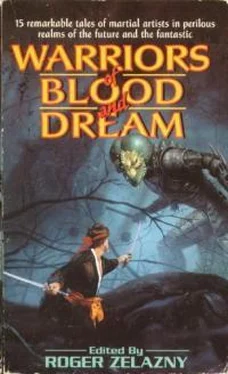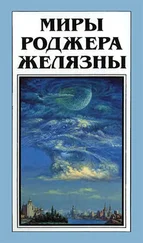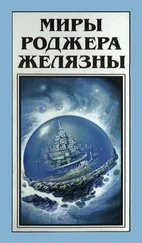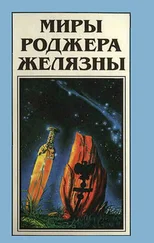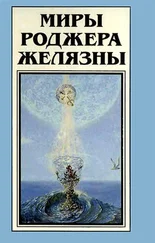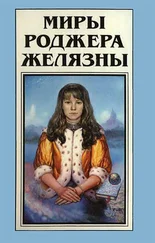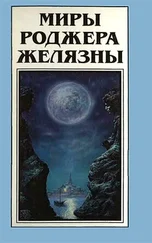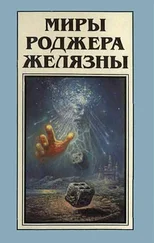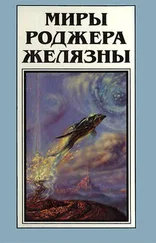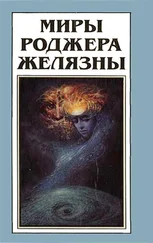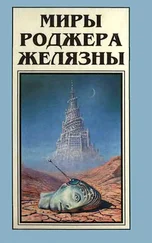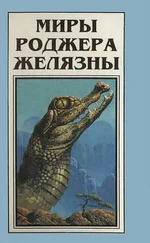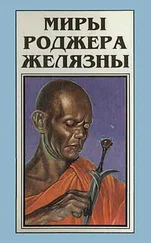At the same time I felt the urge to let go, to plummet through that desirable crack in the cloud-mist, I sensed a presence, not Jan, but someone else, pressing me to the bosom of the mountain. The presence, I knew immediately, was female. And then the beautiful valley closed from my sight. The shifting cloud cover wiped it out, and I found my cheek pressed to the hot clay. Again, the presence urged me on my way; I thought of the clear eye of that conquered raptor, and proceeded to climb.
That night we camped in an orchid meadow. The sweet scent of wild Jamaican orchids filled the night with their blooming fragrance, and the pine sticks we burned added to the sweetness. The thin mountain air was cool and refreshing after the arduous day in the sun.
I explained to Jan what had happened to me on Jacob's Ladder.
"Ah," he sighed, "I was afraid so. For a while there, you hardly moved."
"I know that I was dreaming the climber's dream of death, but she brought me back."
Jan stared fixedly at me through the dancing flames.
Finally he spoke, "You just said, 'she' brought you back."
"It was the falcon spirit that I felt. She came to me. The falconess."
For a long time, he said nothing. We both stared at the flames, the sparks, the gulf of silence between us. Words seemed foolish at such a time. There was the wind, the heady smell of mountain orchids, the impenetrable night as deep as the fathoms that lay below the Horns of the Bull back in the little bay that surrounded Port Maria.
"My friend," Jan said at last, "from now on, you are on your own. I have nothing more to teach you."
"There is one thing that I would like you to tell me."
"Yes?" He looked at me quizzically.
"Once she has blessed you—then what?"
He frowned. "She has not blessed you. Neither has she cursed you. She has merely given you her gaze. Now, the real work begins."
After returning from the Blue Mountains, there were only a couple of days before the triathalon. I mostly spent them on the beach, meditating. Jan came and went, on his various rounds. He was cordial, as ever, but beneath his polite manner he was quite aloof. On the morning of my departure to Kingston, he was nowhere around. I suppose he wanted it that way.
The bus ride from Port Maria to Kingston was on one of those ancient country buses, that have names like Prince Alphonso or King Tubby. They are full of chickens and goats, as well as people, and when the switchbacks on the Junction Road begin, everything inside the bus heaves and rolls chaotically.
Near the little village of Friendship, a beautiful woman got into the bus and sat beside me. The sudden touch of her flesh against mine produced an odd, forgotten sensation—that of sexual arousal. My long absence from any female put me into a kind of decadent daydream, one in which I imagined making love to the woman sitting next to me. And, as the bus pitched forward and aft, I found myself mentally undressing her.
Then we were asprawl, pleasuring ourselves with sex. The bus and its many occupants dimmed and faded. There was only the woman and me, her honey-colored skin melting against mine, as we rolled with the turns of the Junction Road, careening across each curve with passion, aware only of our bodies, our lust.
Just as the two of us spiraled toward orgasm, the bus braked violently, and, failing to make a switchback, suddenly plummeted sideways, crashing down the mountain. Bamboo thickets pounded against the metal sheathing of the bus, and we were thrown about in confusion. Luggage plowed into people's faces; there were shrieks, screams, cries of agony.
Instinctively, I clutched the hand of the beautiful woman next to me. In another moment, the bus went end over end, and crashed into the Double Dragon River. Enmeshed in flailing human forms, I watched as a child was swept by in the floodwater that had now entered the battered bus.
"We've got to get out of here," I shouted at the woman, whose hand was still in mine. Dragging her forcefully, I kicked through an already-splintered window, and, as the green water of the river swallowed us whole, we disappeared, kicking into the gloom. And not a moment too soon, for within a matter of seconds, the bus was gone, and we were fighting for our lives in the tumult of the current.
The Double Dragon is a notoriously treacherous river. Engorged from recent rains, the power of the spray tossed us, smashed us, until, unexpectedly, a hard object slammed into us. It was a steel girder connected to an unfinished bridge. The green water raged past us on all sides. We were pinned, the two of us, to the steel protrusion.
It was then—to my horror—I realized that I'd let go of her hand. She was nowhere to be seen. All around me the wild scales of the Double Dragon flashed in the sun. But the woman was gone, washed away in the flood.
There was nothing left to do but climb up that spike into the sky, inching my way up, muttering softly as I climbed. I knew that I had gone farther than I had ever gone before, that I was beyond the pale, into the twilight world of non definition, pure sensate truth. Everything glowed like hoarfrost, burned before my eye.
Then I saw Babylon blown away, notes of New Orleans jazz tickling my inner ear. I watched, fascinated, as the mountainous grace of the lion sun slouched toward Bethlehem. The plains of Jericho dynamiting wheat, the watercolors of Atlantis running together, the black clouds hanging over the blue Nile.
I became lost in the wind pines of Lebanon, looking for my name, calling for my love as the children of Auschwitz, listened to Segovia's guitar weeping in the snow.
Then all this whirled away.
Waves of nausea passed through me. I looked at my hand and recognized the crumpled tape, the victory ribbon crushed in my palm. For a hushed second, I was all things: fish, lizard, monkey, man. Then I could hear tumultuous shouting, circling faces. The race was over, I had won. The crowd rioted around me.
I got to my feet, unsteadily, peered into the sky. And even before I saw her wings darkening the sun, I saw the eye of the falcon.

In 1968, after suffering a crippling accident, not unlike the one described in the story, I was challenged to learn the art of sokol from a man who recognized my instability but refused to accept it. He was the master described as Jan Volta. Having seen men gnaw through their wrist bones to free themselves of chains, my teacher had little patience for someone as self-indulgent and weak-willed as myself.
During a period that lasted roughly seven years, he put me through a barrage of personal fitness tests, while teaching me the basic moves of the Czech sokolist. To this day, I have never fully understood how a man of his age was able to put himself through the extreme vicissitudes of mental and physical stress, and always come out smiling. Once, after cross-country skiing for twenty-four miles without stopping, he turned to me and said, "Do you sweat?"
This, in his parlance, meant more than winning, for to sweat was to be alive, and to stay alive meant that you were, as he put it, "always the winner."
Zen or Taoism, depending on whether you are talking to a Japanese or a Chinese practitioner of the martial arts, have given much in the way of attitudes and states of mind which can affect one's philosophy as well as one's body.
Kata.
Cameron looked over the expanse of hardwood floor at the Project's rec center. Though used heavily by the scientists and administrative staff for both basketball and volleyball, the fine-grained wood showed hardly a scuff mark—and without varnish or protective covering of any type. The temora tree was a remarkable specimen of this world's flora. A derivative of its bark produced an ace-tylcholine look-alike that showed promise as a retriever of memory and a reverser of senility. Cameron's research team was working on its synthesis in water soluble form.
Читать дальше
